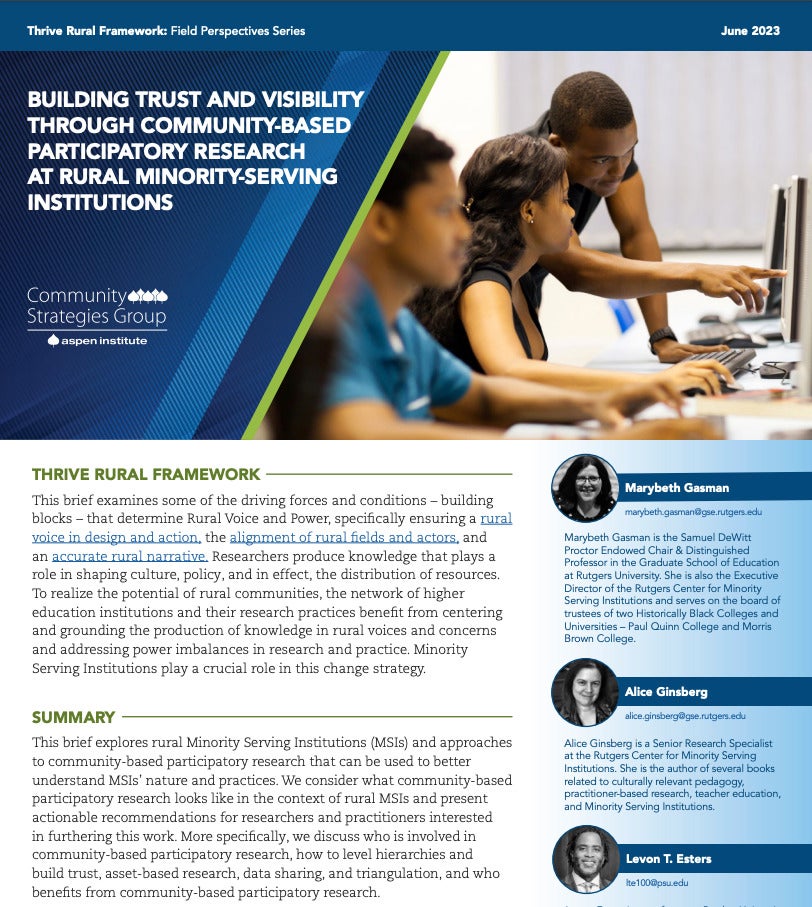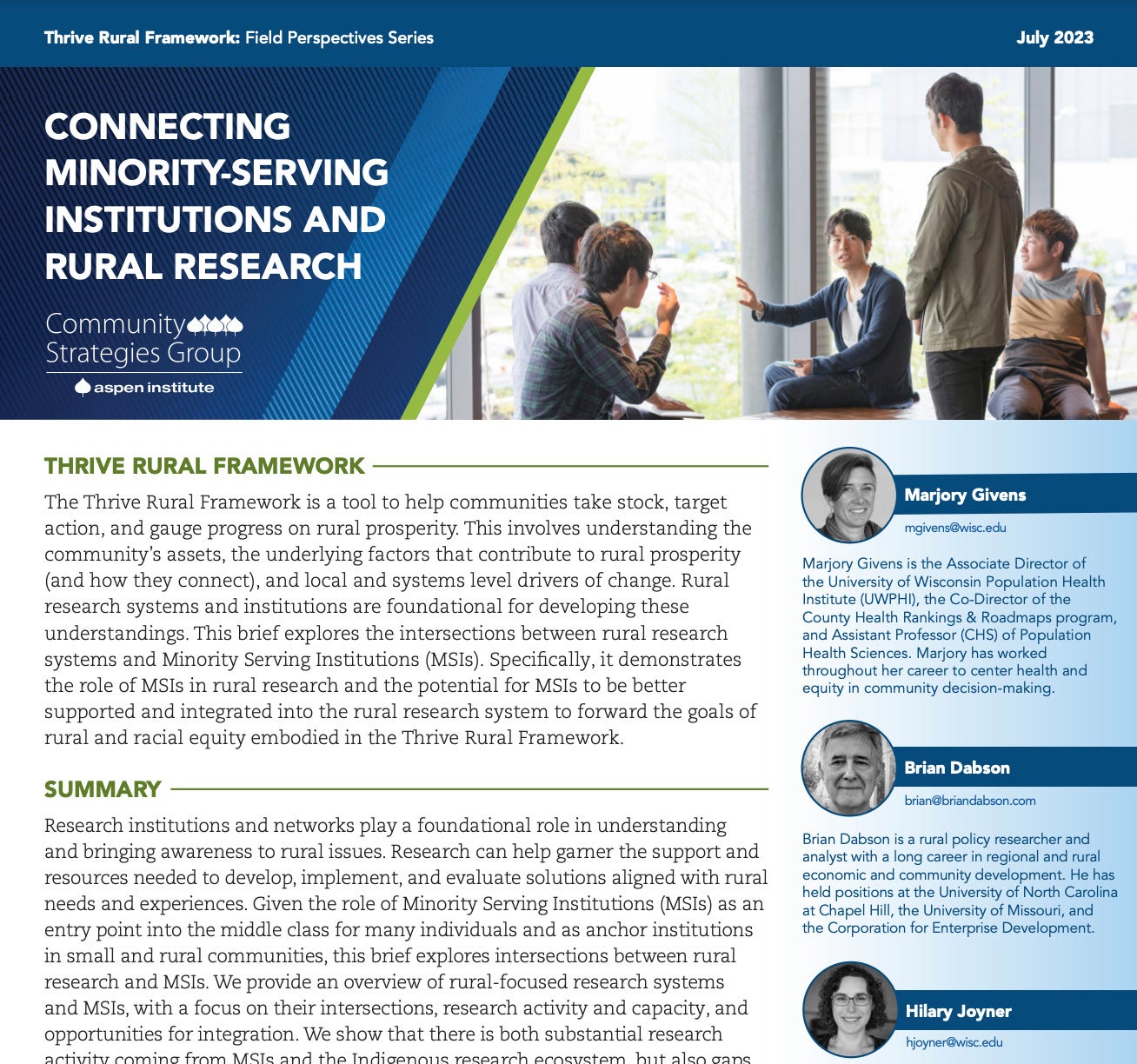Universities and colleges are producers of knowledge and play an important role in shaping culture, policy, political agendas, and in many ways, the flow of resources to communities.
To increase the potential for those living in rural communities, as well as the vibrancy of these communities, researchers can and should center rural voices, ground the production of knowledge in these voices, and address power imbalances in research and practice. Minority Serving Institutions (MSIs) play a crucial role in this strategy for empowering rural communities.
There is a wealth of opportunity to build rural voice and power through engaging with and investing in MSIs, and by employing approaches to community-based participatory research in ways that strengthen and support rural communities.
In our latest research brief, Building Trust and Visibility Through Community-Based Participatory Research at Rural Minority-Serving Institutions, authors Marybeth Gasman, Alice Ginsberg, and Levon T. Esters explore how rural MSIs and approaches to community-based participatory research can be used to better understand MSIs’ nature and practices.
The authors consider what community-based participatory research looks like in the context of rural MSIs and present actionable recommendations for researchers and practitioners interested in furthering this work.
More specifically, the brief highlights who is involved in community-based participatory research, how to level hierarchies and build trust, asset-based research, data sharing, and triangulation, and who benefits from community-based participatory research.
Thrive Rural Framework Connection: This brief examines some of the driving forces and conditions – building blocks – that determine Rural Voice and Power, specifically ensuring a rural voice in design and action, the alignment of rural fields and actors, and an accurate rural narrative.
Researchers produce knowledge that plays a role in shaping culture, policy, and in effect, the distribution of resources. To realize the potential of rural communities, the network of higher education institutions and their research practices benefit from centering and grounding the production of knowledge in rural voices and concerns and addressing power imbalances in research and practice. Minority Serving Institutions play a crucial role in this change strategy.


